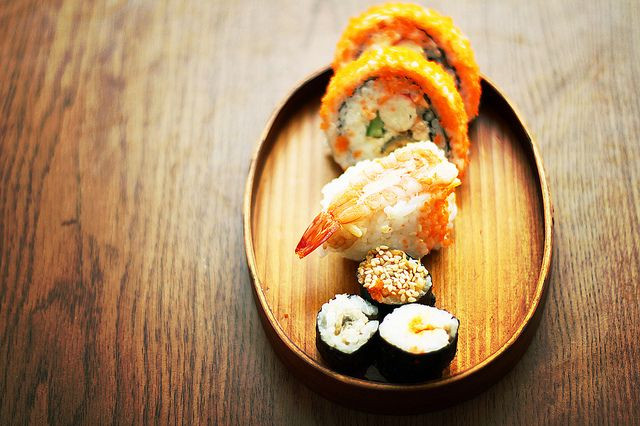Lawsuit Claims California Sushi Rice Contaminated With Rodent Waste, Black Mold For Years

Anyone who’s eaten sushi in California over the last four years may be involved in a new lawsuit, which claims the rice sold to many restaurants, while billed as U.S. No.1 Extra Fancy Rice, actually had been contaminated with rodent waste, mold, and insect parts.
According to CBS News, the class-action lawsuit names Farmer’s Rice Cooperative as having distributed tainted rice to thousands of grocery stores across California, potentially exposing consumers to harmful bacteria and disease. Sellers purposely blended the inedible rice with the correct supply to mask the contamination, the lawsuit claims. As little as 15 percent of the rice sold to restaurants may have been suitable for human consumption.
“The rice is adulterated with what’s called flush in this industry,” said attorney Brian Kabateck to CBS News. “And flush in the industry is anything that is not supposed to be in the rice.”
This isn’t the first time rice has gotten press for contamination. Amid growing concern that arsenic levels in rice were reaching dangerously high levels, in 2013 the Food and Drug Administration released data on approximately 1,300 samples of rice showing the levels were too low to cause any immediate or short-term adverse health effects. Due to low sample size, the agency released no brands whose levels may have been too high.
On Tuesday, Farmer’s Rice Cooperate responded to the allegations by denying any role in the contamination. “We believe the charges are baseless,” the company said in a statement, adding they “look forward to the opportunity to vindicate ourselves in court.”
The Centers for Disease Control and Prevention reports consuming food tainted with rat feces or urine could lead to a number of illnesses. These include Salmonellosis, Tularemia, and Leptospirosis. Many of the diseases produce similar symptoms, such as fever, headaches, and stiffness of joints, and can lead to more serious complications, like organ failure or even death.
“Disposing flush rice by blending it with food-grade rice unfairly allowed defendants to obtain a profit from rice that could not be legally sold for human consumption,” the lawsuit contends. The brands in question go by the names New Variety, New Rose, and Imperial Rose. So far, no deaths or illnesses have been reported as part of the lawsuit.
Published by Medicaldaily.com



























